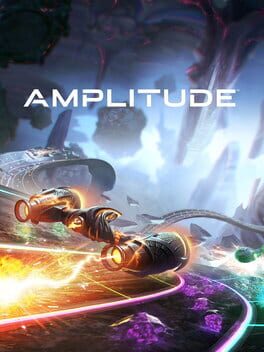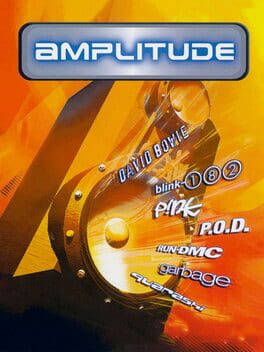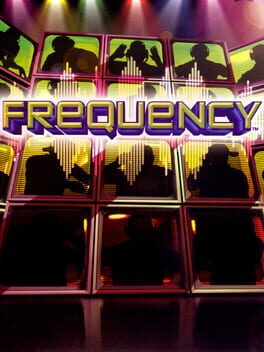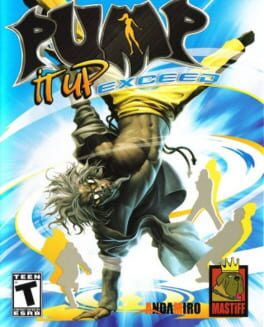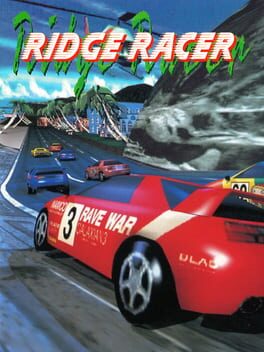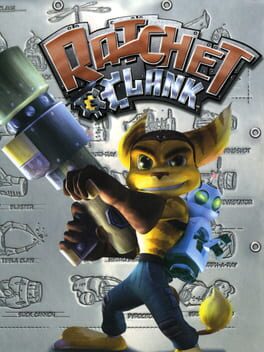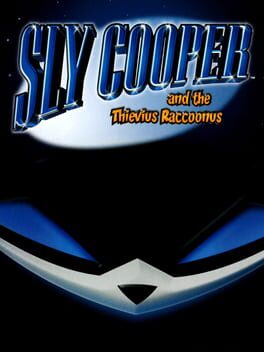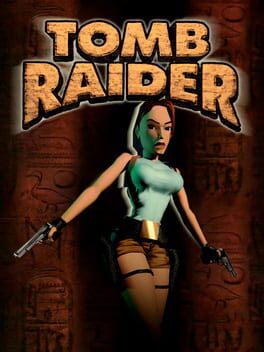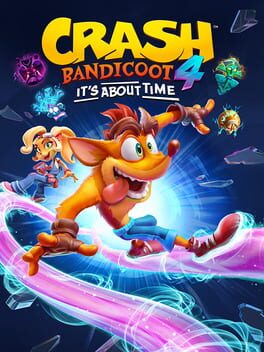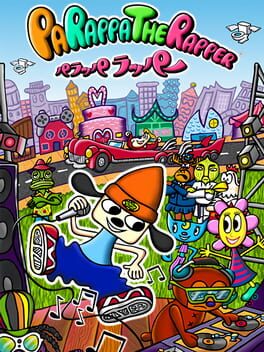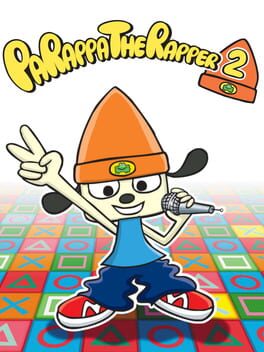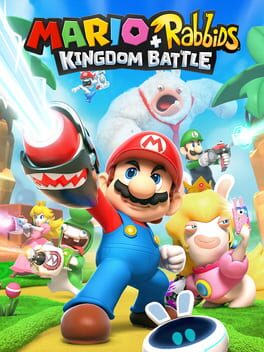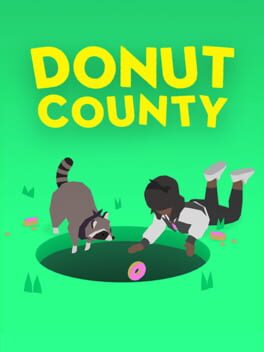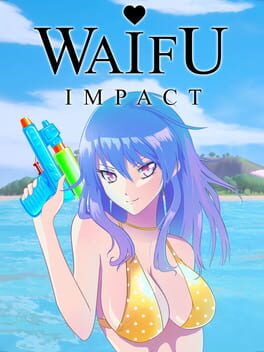kaijudave
2016
After playing through the original Amplitude and the Frequency follow-up, I find the revival of the series to be an odd one at best. I do like that the core game-play feels right at home with the PS2 series, and rightfully improves upon it. I like the sci-fi narrative and venturing to different parts of the brain. I like the presentation, graphics, and overall art style as well. So why the hesitation to call this good? Since it's a rhythm game, all rhythm games live and die on the quality of the music and Amplitude simply does not cut it. It could be because the music was made in-house or because the style of music they went for feels awfully generic for EDM even in 2016, or that the way the music is mixed just sounds like utter cacophony at times. Whatever it is, I personally don't care for 80% of the music on here. You couldn't convince me to listen to it on my own time which is sad because it has artists I otherwise like (ie, Jim Guthrie, Freezepop, C418). It sucks we may never get any follow-through for this unique rhythm-game series, but I have to admit this is mediocre at best.
2003
Amplitude may be the sequel to Frequency, but it can be argued they go for very different aesthetics and game designs despite the core of its gameplay being the same. You still have to fly along a musical track, with each one denoting the different instruments that all play together if you keep a consistent combo. It becomes different now that the tracks are laid flat instead of a circle, so you have to zip left and right instead of turning a 180. I personally don't like that you can't loop from one end to the other, but if you're good at doing combos it shouldn't be too different. Aside from that, I find the aesthetic of Amplitude to be more pleasing. It has grungy and futuristic metropolises that you traverse, you get goofy 3D avatars as your icons, and it's overall a more defined world than Frequency. Of course this is a rhythm game, so how's the music itself? Honestly, it's a hit-or-miss collection of 90s and 00s punk/grunge/pop remixes that really show their age. If you're into reliving the days of P!nk, Slipknot, and Blink-182, by all means you'll love diving into this. One other point I'll give Amplitude over its predecessor is that the time input is not as harsh or as unresponsive, so I was able to finish the game. It's just as difficult though, so don't think of it as an easy ride either. Taking it holistically, Amplitude is a fine rhythm game that I wish was explored a lot more because it has so much potential. If you're not a rhythm game fan however, you're not missing out on too much as it isn't very beginner friendly.
2001
I kind of wish I had known about this forgotten rhythm game series when I was growing up because lil ol' me would have loved this shit. Frequency is very unique in that it was most likely the blueprint to what Guitar Hero would be, using a music track with timed patterns. It sounds simplified too until you involve a row of them bunched in a circle Tempest-style. Each track plays one instrument and the goal is to combo between tracks to get the full track playing till the end. It's a pretty neat concept and its paired with wonderful neon-glow visuals. It's a striking game even if it tends to go overboard on being too abstract. The song list is pretty decent too, even if a bit dated. It's the best you can ask for trance, electronica, and trip hop at this time. The biggest drawback that prevents me from fully liking the game is that button timing is outright atrocious with this game sometimes. I've tried different controllers, timing combinations, and button remapping to get it to respond to my inputs correctly and it never would. Don't get me started with the difficulty of this game as well. It does not help that you have to be very quick and precise as you progress. This is ultimately have it shelved, and I was at the second to last song by that point. I do still like Frequency at the end of the day, I just wish it wasn't as broken for me so I could enjoy the experience more.
2019
[Thoughts based on playthrough of Director's Cut]
With the advertisement campaign over and about two years to reflect since its release, Death Stranding is still a bizarre game to talk about.
In terms of gameplay it's one of the most unique as it takes the philosophy of "the journey versus the destination" to its extreme in a gaming context. How you deliver truly matters, as simply tripping on a rock can cost you if you're not careful. The game gradually introduces new modes of transportation, enemies, and equipment to further expand your mail delivery empire and ease your journey. That doesn't mean you won't run into issues, just that your fuck-ups become magnified as you can accidentally trap a whole truck of cargo down a river. It can feel feel exhausting and even discouraging when it happens but the online function of letting players help each other through donations, likes, and structures keeps the game from being pessimistic. This exploration of risk and reward is what has sold many to keep playing including myself.
In terms of story and how Kojima games work, I'm not going to delve too deeply into it. If you've played a Kojima game and are into his frustrating and complex character arcs and worldbuilding, Death Stranding proves to be the next jump. If you don't, and frankly even if you do, you have to deal with Kojima's bizarre fusion of game and movie philosophy that can be up its own ass. Either way, I personally did get invested in it and I find it more entertaining than frustrating.
While I would say I had loved this game from the get-go, it's interesting how many players and game critics who've initially hated this game would magically put in 80+ hours and multiple playthroughs. I suppose it's a game that's fun to be angry about, which is fine by me We'll see what another few years will do to this game.
With the advertisement campaign over and about two years to reflect since its release, Death Stranding is still a bizarre game to talk about.
In terms of gameplay it's one of the most unique as it takes the philosophy of "the journey versus the destination" to its extreme in a gaming context. How you deliver truly matters, as simply tripping on a rock can cost you if you're not careful. The game gradually introduces new modes of transportation, enemies, and equipment to further expand your mail delivery empire and ease your journey. That doesn't mean you won't run into issues, just that your fuck-ups become magnified as you can accidentally trap a whole truck of cargo down a river. It can feel feel exhausting and even discouraging when it happens but the online function of letting players help each other through donations, likes, and structures keeps the game from being pessimistic. This exploration of risk and reward is what has sold many to keep playing including myself.
In terms of story and how Kojima games work, I'm not going to delve too deeply into it. If you've played a Kojima game and are into his frustrating and complex character arcs and worldbuilding, Death Stranding proves to be the next jump. If you don't, and frankly even if you do, you have to deal with Kojima's bizarre fusion of game and movie philosophy that can be up its own ass. Either way, I personally did get invested in it and I find it more entertaining than frustrating.
While I would say I had loved this game from the get-go, it's interesting how many players and game critics who've initially hated this game would magically put in 80+ hours and multiple playthroughs. I suppose it's a game that's fun to be angry about, which is fine by me We'll see what another few years will do to this game.
2004
As my first exposure to the PIU series and the only one to come to home consoles in the west, it was the coolest thing to younger me. Here comes a game with so much edgy coolness, with mature content and equally in-your-face music. It's surprisingly aged well too, as the metallic sheen of the UI and transition effects have held up. It's also astonishing that a lot of the music is representative of the arcade game too, choosing to keep the Korean music intact instead of opting for more accessible Western content. I remember I downloaded MP3s of all the songs and burned them to CDs so I could listen to them outside of the game. It was my first exposure to Korean music and it was a very awesome time. As for the actual gameplay, it feels like your usual DDR except they're diagonal and have a center button. From what I remember the dance mats were always pretty responsive and playing on controller was fine, but it's very dependent on if your shoulder buttons can handle it. The only negatives I could impose is that if you're sensitive to light flashes and motion sickness, you may want to turn off the videos. It's disappointing there was never a follow-up, as PIU has mostly stayed in Korea as of now.
1993
I've admired Ridge Racer from afar and I wanted to see what all the hubbub about this franchise was about. Now, there's a lot of cool things and a lot of things that have aged this first entry. First off, the music is incredibly stellar, filled with jungle and drum'n'bass goodness. I even got the remixes CD from Namco Sampling Masters. What's better is that this game lets you play music from burnt CDs, the only game outside of the PS1 rhythm games to offer this option as far as I know. As far as the racing goes, it's pretty forgiving as long as you have the timing of your turns right (and I would suggest first-person mode on this). This game is very very short when you have the tricks down, because you only have one track that changes based on difficulty. Sure, you unlock different cars and get a few from cheat codes but they hardly change the dynamic of the game. This is a game screaming for something a bit more, maybe another track possibly. It's a charming little PS1 game for sure, but I feel sorry for anyone who bought this at retail. Shoutout to those that were able to beat the Galaxian mini-game.
2002
As much as I love platformers and furry characters, I never played Ratchet & Clank up till now. After pushing through it, I want to like this game a lot more but it left me more frustrated than entertained. People's love for this game seems to hinge on nostalgia, because they don't ever seem to talk about some of the more clunky aspects of its gameplay. For one, it really didn't need this array of mediocre weaponry as only a few merited rotation. The mini-games seem to be an afterthought, hence why the bolt farming glitch possibly exists (and makes the final boss a goddamn breeze). While each world is small and contained, enemy rushes and an unclear checkpoint system make the later portion of the game a complete chore to get through. Having to trace back to previous worlds also feels like padding for a game that runs its welcome already. The saving grace of Ratchet & Clank is the worldbuilding, the cutscenes, the character arcs, and the political humor that has aged like wine. This is what I imagine makes the biggest impression and gives the drab experience some color and meaning. It's why I even bothered finishing this game at least. I hear the later entries improve on the negatives more but we will have to see when I get there. Overall, I can understand why this had the staying power it did but I'm not going to lie that this is one of the more clunkier 3D platformers on the system.
Thanks to my local video game store for cleaning out the scratches from my copy, I could finish the final portion of the game and give my thoughts on Sly Cooper. Like Ratchet & Clank, this was a series I never grew up with when the PS2 was still king. Being a fan of funky 3D platformers with collect-a-thon mechanics, the first game of the series brings a wonderful impression to what Sly Cooper is about. Cooper himself is an incredibly cool and suave character that is also not insufferable. The game does everything it can to immerse you as a stealthy trickster and "thief" who is trying to salvage his ancestor's legacy that was taken away from him. For a story that builds on this comic-book like, Saturday morning cartoon approach, it creates an effective call-to-action. The game itself is also paced very well. Levels are linear and short, and collectables can be found within one or two runs. I appreciate a game that can build great environments within small spaces like this. The bosses carry the right amount of challenge, and while I don't want to spoil too much, they all have unique gimmicks that I hadn't seen done in many games. If there's anything to fault this game for, it's for the mini-games disguised as afterthoughts to pad a good game. Other things like the camera controls and positioning could have been handled better. The hitbox detection is also inconsistent at times and resulted in more deaths than I care to admit. By today's standards, the Thievius Raccoonus holds up well enough with the limitations presented.
1996
For as much as I appreciate the Tomb Raider franchise, I can't say the same for the first game. It's one I like in concept, and I love watching others play it, but I've decided this game is just not for me when it comes down to picking up the controller and trying it out. I find picking up items frustrating. Keeping track of where I'm going while also making sure Croft's positioning is correct is a nightmare. Having no sense of direction as I hit endless corridors of dead ends, traps, and vicious animals behind me gives me endless anxiety. It has never been a fun time for me, yet I can understand how satisfying the gameplay is when something goes your way. Doing cool flips while gunning down your enemy is the most badass thing. What I can say has given Tomb Raider its lasting power is the cutscenes and ever-changing environments the deeper you progress. I know what fucked up shit happens in this game. Even with the advancement of game graphics, Tomb Raider wouldn't and doesn't feel as raw as it does without the blocky textures. Despite how primitive and dated this game is, it's also precisely why it works at all.
It feels strange to admit while I did grow up playing Crash games, they were mostly spin-offs like the cart racers and Crash Bash. I don't think I ever properly sat through the original trilogy until the 2017 remakes. While I did enjoy the remake, Crash 4 was the one to really click with me. It may be that all it took was for the franchise to be modernized and given a proper treatment, with well-animated characters and a goofy story to complement. Throwing away old habits like limited lives improves a game, who could have guessed. What does make this stand out is the collect-a-thon challenges and oodles of extra content that flows like an endless river. I also appreciate that it's not a copy-paste of the game physics from the trilogy remake, and instead forges its own mechanics with levels that work with those conditions. Everything about this game is well-made from the ground up, making it a great gateway into the Crash franchise.
PaRappa is a short and fulfilling little game that is certainly not worth the amount of money it went for at retail nor in today's secondary market (speaking of the PS1 release of course). That being said, just because it's short doesn't mean it's a breeze. Whether you're playing the original or the remaster, most of your playthrough will be spent mastering the timing correctly. It's pretty much essential to your progress. While it sounds frustrating on paper, the game does a good job in every other department from the bouncy rap music to the funnily-designed characters and the colorful aesthetic. Even now it's still a noteworthy rhythm-game to play through.
2001
My big expectation for the sequel was that it would fix and improve the janky nature of the original and smooth it out with a more friendly introduction for new players, and that's pretty much how it rolls. I very much appreciate the practice tutorials before each song, the expanded game world of PaRappa, and the more forgiving button input. It does what any good sequel should, and it's pretty much up to preference whether you think the original had stronger songs than the sequel. There is really nothing much to complain for a well-put rhythm game.
I took a chance on this game from a friend's honest recommendation and it was on sale at the time. I'm not familiar with turn-based strategy games, so I was going in blind on both its unique setting and gameplay. I was honestly not expecting much because of its ridiculous cross-over concept, but that level of freedom in silliness and humor is what made this an enjoyable experience. It added greatly to what I felt to be a solid turn-based combat system, utilizing weapons and boosts that make sense to each character. It makes a great introduction to its turn-based system and builds upon it with skill trees and a diverse roster. Within the first few hours I was heavily invested in making sure I got the most out of this game, which is something any game should strive to make a player feel. If you haven't gotten into the turn-based genre, this is actually a great place to start, too. I eagerly await the sequel as I get through the expanded DLC next.
2018
I was sold on the game on the basis that it had a mischievous talking raccoon as a main character, although you don't play as him. You play as the cause for the disasters of Donut County--the hole! While the puzzles of each little world you're in are not that complicated, there's a lot of humor and fun to be had with environment interactions. The characters you meet as the story progresses add a lot of color to this town. You get to know them more intimately through each puzzle-ready world you step in, which is such a creative touch. The music done by Daniel Koestner sells the cutesy, warm aesthetic of the smooth polygon world of Donut County. It is also amazingly to listen to on its own. The only major issue I had with the game is that it's very short with little replay value. There's not much new to replay if you end up sucking up every possible object in the game on first playthrough. It feels prime for some DLC or alternate takes on its puzzles but as it stands, it at least feels like a complete gameplay experience.
2021
